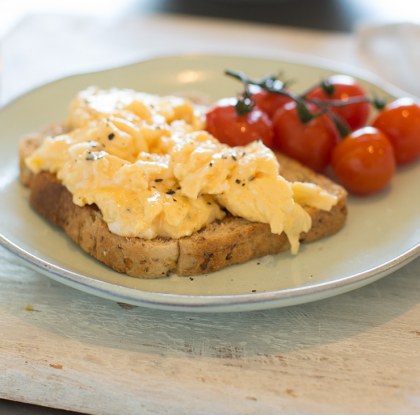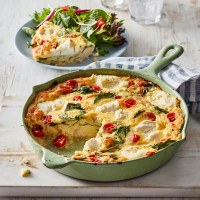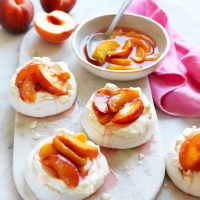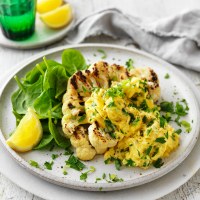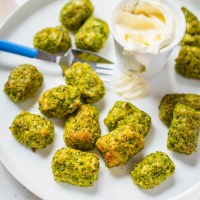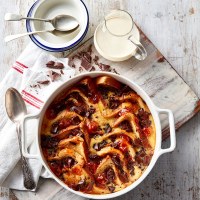How to freeze eggs
Eggs are a great staple food to have on hand because they’re easy to turn into a meal, are essential in many recipes and most importantly they’re nutritious and delicious. So if you want to make sure you always have some eggs, or if you bought too many, here’s an easy guide to freezing whole eggs in ice cube trays, muffin tins or zip lock bags. We also have tips for freezing only egg whites or egg yolks, and how to defrost eggs.
These tips are important whether you’re freezing whole eggs, yolks or whites:
- Zip lock bags/muffin tins – zip lock bags are great for freezing flat and avoiding freezer burn. Or use muffin tins to freeze individual portions (silicone cases make them easy to pop out) then one frozen solid, place into a bag. Then you can defrost individual serves.
- Label – mark the number of eggs and describe anything you’ve added.
- Date – frozen eggs are best eaten within one year, date your packages so you know which to eat first.
- How to defrost eggs – defrost in the fridge overnight or put the bag in a bowl of room temperature water. Use thawed eggs as soon as possible. Eggs will perform best immediately after defrosting. The only exception is whipping egg whites, letting them stand for 30 mins at room temperature can help their structure.
How to freeze whole eggs
Frozen whole and unbeaten eggs are great for frying or scrambling. However, they aren't good for poaching or boiling. Egg yolks will turn thick and gel-like once frozen, making them difficult to incorporate with other ingredients for recipes such as cakes. Avoid this by cracking the eggs and beating them into a homogenous mixture before freezing. Mix gently to avoid incorporating lots of air. Pour into a zip lock bag, squeeze out excess air and freeze flat, or freeze in individual portions before moving into zip lock bag. Don’t freeze eggs in the shell, as they’re prone to cracking.
How to freeze egg yolks
Plain egg yolks become thick and sticky when frozen. If you’re using them in a sauce or baked goods, it will break into blobs of yolk rather than a smooth mixture. To reduce the chances of this, mix yolks with either salt or sugar before freezing. A good rule of thumb is to add around 1/8 teaspoon salt or 1 ½ teaspoons of sugar or corn syrup for every quarter cup of yolks (about 4 egg yolks). Use the chart below:
| No. Yolks | Salt | Sugar/corn syrup |
| 2 | 1/8 tsp | 3/4 tsp |
| 4 | 1/8 tsp | 1 1/2 tsp |
| 6 | 1/4 tsp | 2 1/4 tsp |
| 8 | 1/4 tsp | 3 tsp |
| 10 | 1/2 tsp | 3 1/2 tsp |
| 12 | 1/2 tsp | 4 1/2 tsp |
Mix thoroughly. Freeze in bags or as individual portions in muffin tins or ice cube trays. Remember to label the yolks so you know whether to use them in sweet or savoury dishes.
How to freeze egg whites
Egg whites freeze very well as is. Freeze in zip-lock bags or as individual portions in muffin tins or ice cube trays. Once defrosted they can be used as normal, whether whipping them up for a meringue or cooking them in a scramble.
Three variations on scrambled eggs, whether you want the basics, convenience or something extra delicious.
GET THE RECIPE: Sweet Potato and Broccoli Frittata by Australian Sweet Potatoes
A great way to use frozen whole eggs. You could also use frozen broccoli in this recipe for extra convenience.
A classic Aussie dessert, use egg whites to make the meringue and egg yolks to make the lemon curd!

